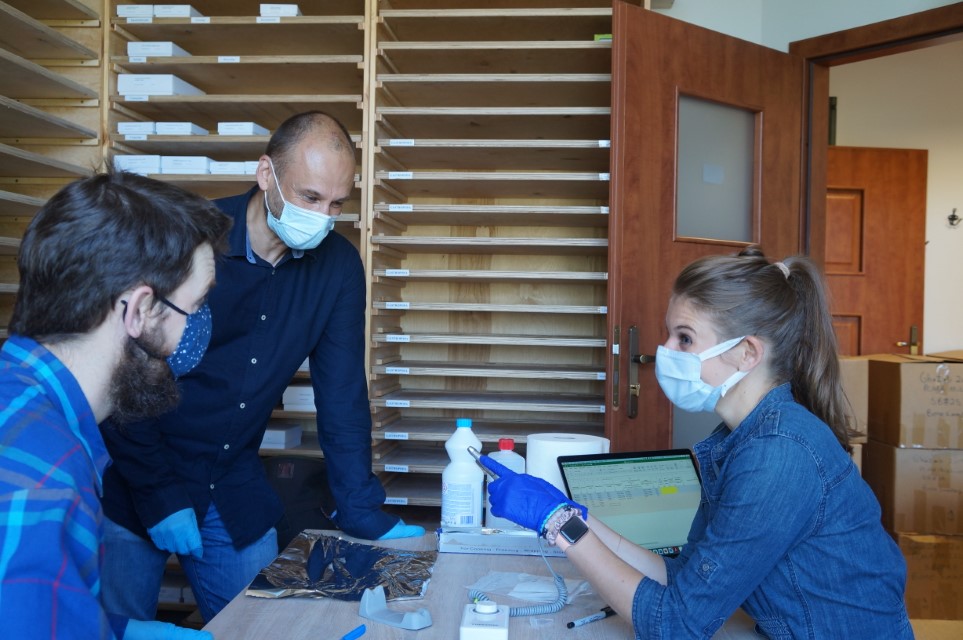Researchers from Harvard University and the Polish Centre of Mediterranean Archaeology University of Warsaw (PCMA UW) undertook training in methods for sampling skeletal materials to conduct ancient DNA analyses (aDNA).
The training session, which took place from August 29th to September 5th, was part of the first stage of the larger National Geographic Society (NGS) grant project “The People of Ghazali: Tracing the Human Experience in a Nubian Desert Monastic Community (680-1275 CE)” (NGS-67810R-20) headed by Dr. Robert J. Stark of the PCMA UW.
This most recent aspect of the NGS project was conducted in the PCMA UW bioarchaeology lab, where the skeletal remains from Polish excavations at Ghazali, Sudan are currently being studied. Training of individuals from the PCMA UW in aDNA sampling methods was conducted by Dr. Kendra Sirak, a Senior Staff Scientist in the David Reich Lab at Harvard University. The training and associated results from skeletal sampling will provide new opportunities for PCMA UW researchers, as well as deeper insights to the biological backgrounds of monks and laypersons who resided at, and around Ghazali in the Middle Ages.

